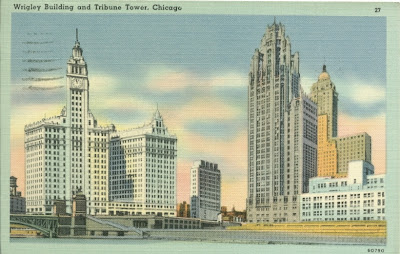 |
| PRECKWINKLE: No more cheap arrests |
Anybody who is shocked and outraged that Cook County Board President Toni Preckwinkle thinks many of the people who currently clog the county jail because of petty drug arrests hasn’t been paying attention.
Her relevation earlier this week that she has asked police Superintendent Garry McCarthy to have the Police Department reduce the amount of arrests it does for marijuana possession is so in line with her general rhetoric when it comes to crime and incarceration. It’s not surprising.
THOSE WHO WANT to claim outrage should consider that such a sentiment says more about you than it does about Preckwinkle.
Perhaps it is because I have handled reporter-type assignments where I have heard Preckwinkle talk about the conditions at Cook County Jail, which she thinks are miserable because the place is so overcrowded with people who really have no need to be kept locked away from the bulk of society.
The crowded conditions create an environment where those inmates who really do need to be locked up while their criminal cases are pending become harder to keep an eye on.
The end result is hazardous conditions for all.
EARLIER THIS YEAR, I heard Preckwinkle speak to school children in suburban South Holland. It may have been a Catholic school, but the gathering was almost entirely of African-American youths with an occasional Latino kid in the mix.
She told those kids of the statistics indicating the heavy racial minority composition of the jail population and how the current system means that those minority kids will have to behave extra careful in order to ensure that they don’t someday wind up in jail.
“That’s why it is particularly important for you to behave,” Preckwinkle said back in April. “Jail is not a place where you want yourself, or any of your friends, to be.”
But the reason it becomes so miserable, she has always said, is because of the large number of people who ought to be receiving something resembling treatment for their drug problems – rather than being locked away for drug possession.
THOSE ARRESTS FOR small amounts could even wind up becoming more serious drug problems while in jail, just because some people can only cope with the sordid conditions at 26th Street and California Avenue by using substances that numb their senses.
In light of the fact that she has expressed these views (which weren’t even terribly new when I heard them this spring) before, the idea that she’s now using her new government post (she hasn’t even been county board president for a full year yet) to try to influence people in positions of law enforcement authority merely seems like a logical act.
Which is why there are now reports all over Chicago and the Associated Press newswire is spreading the word across the nation about the Cook County politico who doesn’t want people arrested for drug possession.
“It’s pretty well-known within the criminal justice system that the judges will dismiss those charges for very modest amounts of illicit drugs,” Preckwinkle said earlier this week to reporter-types. “I suggested to (McCarthy) that the police might stop arresting people for this, since it clogs up our jail and their cases will be dismissed out anyway.”
AS ONE WHO has sat through many court proceedings throughout the years, I have seen the truth of this statement. The people who got picked up because a police officer discovered enough marijuana for a cigarette or two will get their cases dismissed – provided there aren’t some other factors (such as trying to get physically abusive with the cop) that come into play.
In fact, some suburbs already have decriminalized such small amounts of the drug to the point where someone who gets caught merely makes an appearance in municipal court to pay a fine for violating a local ordinance.
And one gets the strong impression that those municipalities are more interested in collecting the fines to bolster their local revenues than they are in putting up any image of protecting the morals of their communities.
Now I know some people find this kind of attitude offensive.
THEY WANT TO believe that pursuing even the smallest amounts of drug usage is making a bold stand for morals and decency, and that easing up in any sense is taking the “radical” step toward legalization of such drugs.
Which is over-bloated rhetorical nonsense.
Personally, I have no problem regarding someone who abuses drugs to the point where it takes over their lives in the same way I view an alcoholic. They need help. Perhaps the day will come when we see our various attempts at staging a “War on Drugs” as a failure just as much as the alcohol Prohibition of the 1920s.
If we are to move in that direction, we’re going to need more political people like Preckwinkle who are willing to view the issue in ways other than those meant to pander to the ideologues of our society – who themselves could probably care less about those using drugs, except to the degree that it gives them someone to rant and rage against.
-30-













